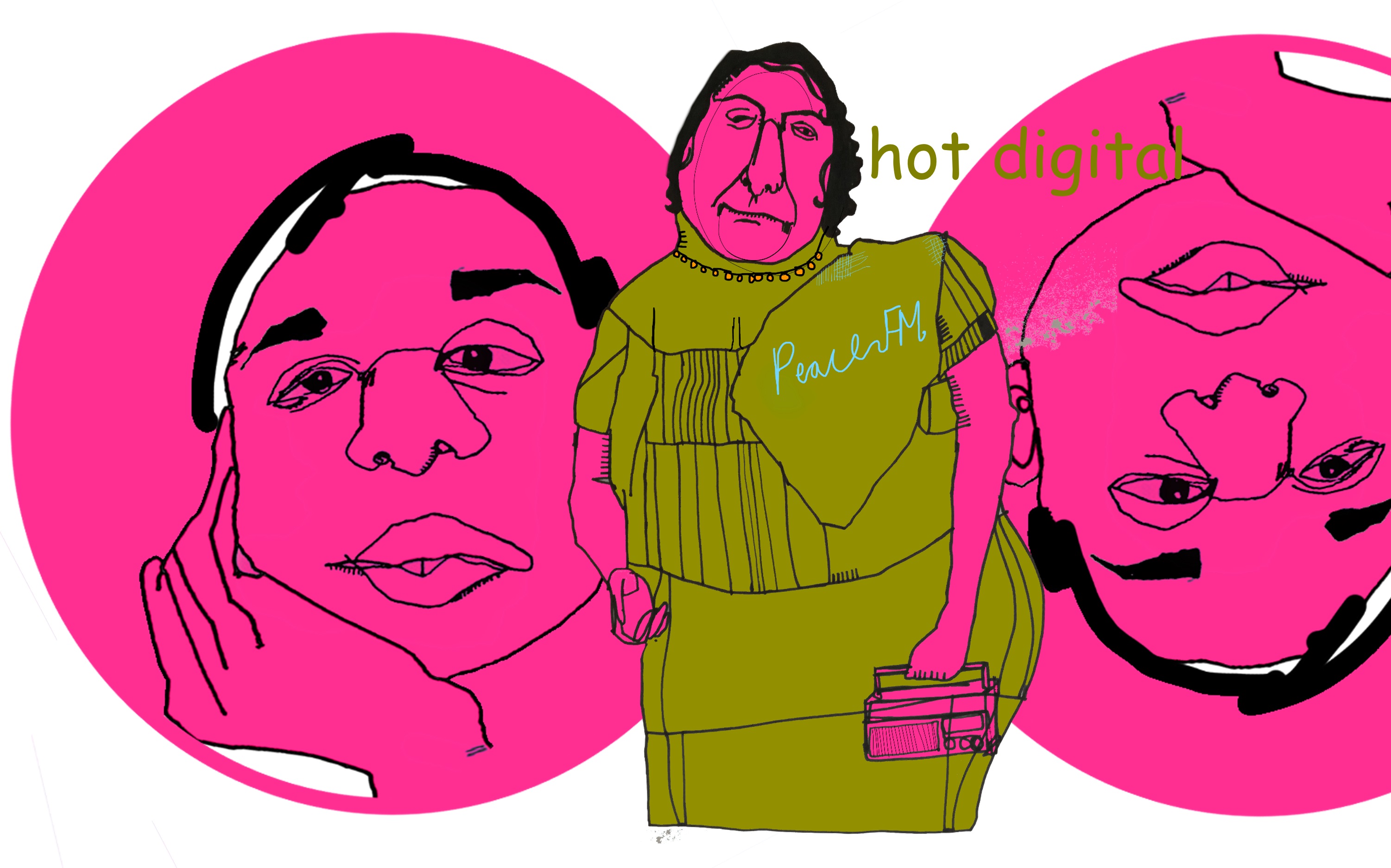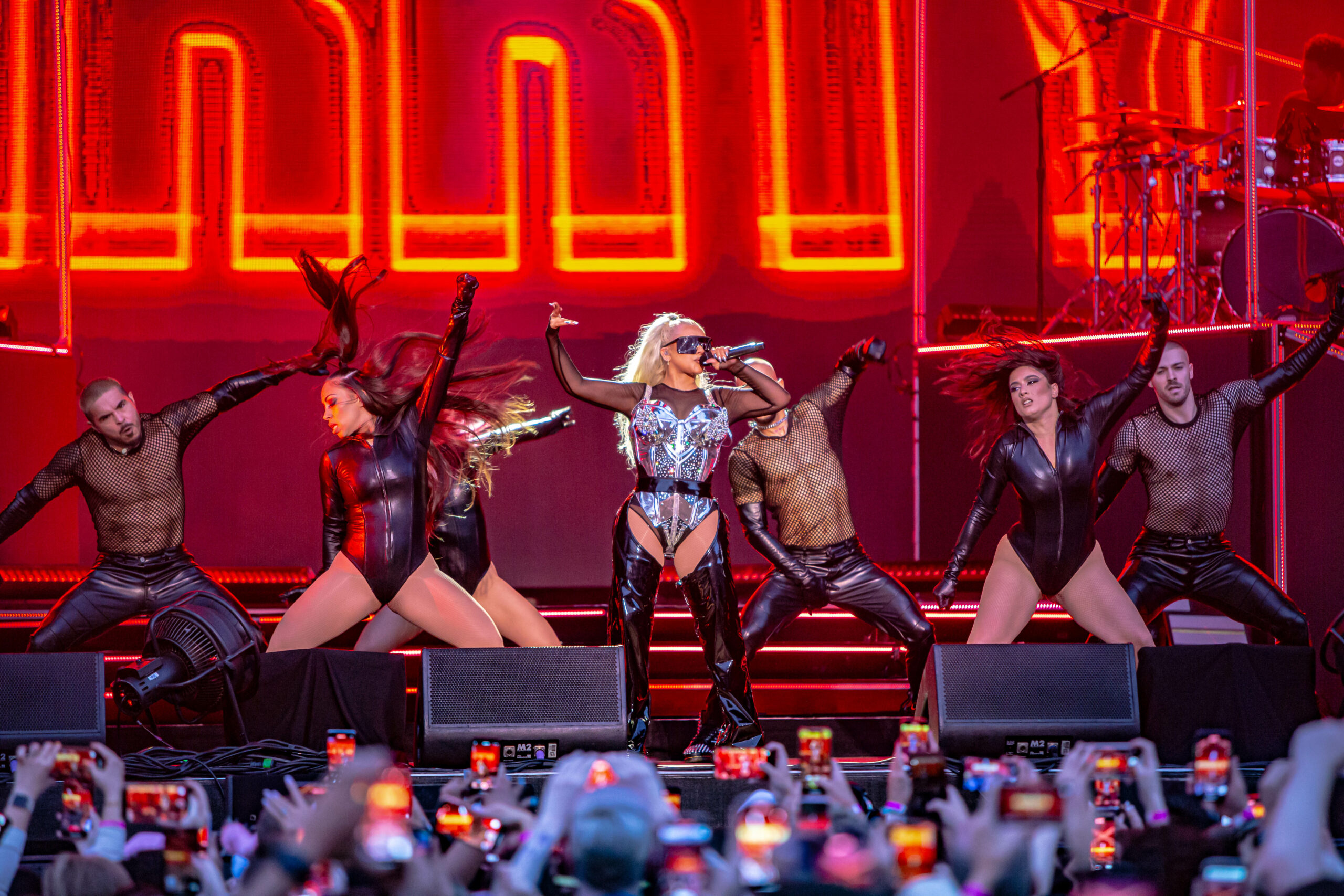
In the run up to gal-dem’s birthday and release of our second print issue, we’ll be posting articles focusing on this year’s theme of ‘HOME’ . They will feature content centred around our experiences relating to what home means for us as women and non binary people of colour, in a personal and political sense. Tickets are still available here for the print launch on Friday 29 September.
Some of my earliest childhood memories involve the braggadocio of Ghanaian MCs blasting out of our cheap radio. We threw it out with a major spring clean years ago and the house became quiet for a long time. With everyone wearing earphones, you could only catch tiny clues as to what someone was listening to. Until one day, after failing to sell my record player, I set it up in the living room and showed mum the radio function.
Suddenly the house was filled with music and voices so different to those we heard regularly on the TV. I was used to the sight of kente cloth draped over the living room door, and the smell of rice that greeted me after a day out, but now more often than not I was also met with the slightly muted sounds of Highlife from the radio. It seemed to make the house brighter and I couldn’t help but feel warm about the “Ghanaian-ness” of the whole thing. For some reason now, at 22, I was more conscious than ever of the cultural intersection our family home represented.
The media has always played a vital part in identity formation, providing platforms for conversation about cultural histories and possible futures. Mainstream media tends to focus predominantly on the issues of the dominant culture, so avenues like diaspora radio create alternative spaces. Frances Henry commenting on the use of community radio by the Caribbean diaspora in Toronto, said that by creating their own platforms these communities were attempting to maintain aspects of their culture and ethnicity, not bending to pressures to assimilate but rather embracing being part of the plural structure of society.
I want to suggest that that is the goal of many diasporic radio stations around the world, including the Ghanaians ones I’ve begun listening to here in the UK. These stations may not be community radio in the sense of being non-profit, but their social influence and promotion of pride in identity, healthy debate, and community cohesion cannot be understated.
“Wherever there are communities of Ghanaian immigrants there are radio stations, all encouraging and enabling listeners to participate in the processes that affect their communities”
According to Modern Ghana, there are over fifty Ghanaian radio stations in the UK broadcasting everything from music and political debate to church sermons and news bulletins. There are hundreds dotted around the world. Wherever there are communities of Ghanaian immigrants there are radio stations, all encouraging and enabling listeners to participate in the processes that affect their communities, as well as providing a cultural connection to home. These stations are spaces where listeners can hear familiar genres of music such as afrobeats, hiplife, and highlife, as well as those languages spoken by the Ghanaian diaspora.
There was a time when my family would interact with the wider Ghanaian community more regularly. Weekly trips to Beeman’s, an Afro-Caribbean grocery store, to buy kenkey or okra, chat with “uncles”, “aunties” and so-called captains and professors, provided the opportunity to hear first-hand stories about life both here and in Ghana. My sister and I would hear about struggles under the Rawlings administration, and incessant power cuts. We’d witness reunions; everybody seemed to know each other. We’d be warned not to touch the scotch bonnets. We’d flip through Akwaaba magazine and nibble plantain crisps. These shops were the unofficial community hubs for the scattered pockets of the Ghanaian community. But under the pressure of rapid gentrification, one by one these hubs disappeared, and so did those people.
“I never felt more connected to the wider Ghanaian community, the community beyond my immediate and extended family, than when I listened to the radio”
We didn’t have the TV channels like OBE or ABN TV. The only chances I got to see them were when I visited family and they’d have films playing in the background. I couldn’t ignore the gap that seemed to yawn like a chasm between us. It felt like I was on the outside looking in. My relatives houses always felt distinctly more Ghanaian than our own. That was until the sounds of Hot Digital, and Peace FM began to play continuously through our house. I never felt more connected to the wider Ghanaian community, the community beyond my immediate and extended family, than when I listened to the radio. It brought Ghanaian culture into my everyday life.
The music and the chatter seep into my brain and I find myself singing jingles in Twi, a language I’ve always understood but shied away from speaking. I hear other voices speak in Twi now, not just my mother’s. I hear political debate about what is happening in Ghana from the perspectives of the people it affects, not in paternalistic news reports. I hear about the events that bring Ghanaians together, and even if I can’t make it to them, it feels great to be in the loop.
That’s even more so the case for my mother. She can’t get back home as often as she would like to, only managing to visit twice since she moved here twenty five years ago. She calls home of course, and borrows my phone constantly to use Whatsapp. But the smile on her face as she listens to some hilarious anecdote somebody has phoned in, or when she hears something that reminds her of life in Ghana, is priceless.
Ghanaian diaspora radio connects first generation immigrants to where they were born but, it also provides a connection for second generation (and beyond) Brits of Ghanaian descent, like myself. In this connection I get to see clearly, and embrace fully, the intersection between the motherland and the place I call home.









